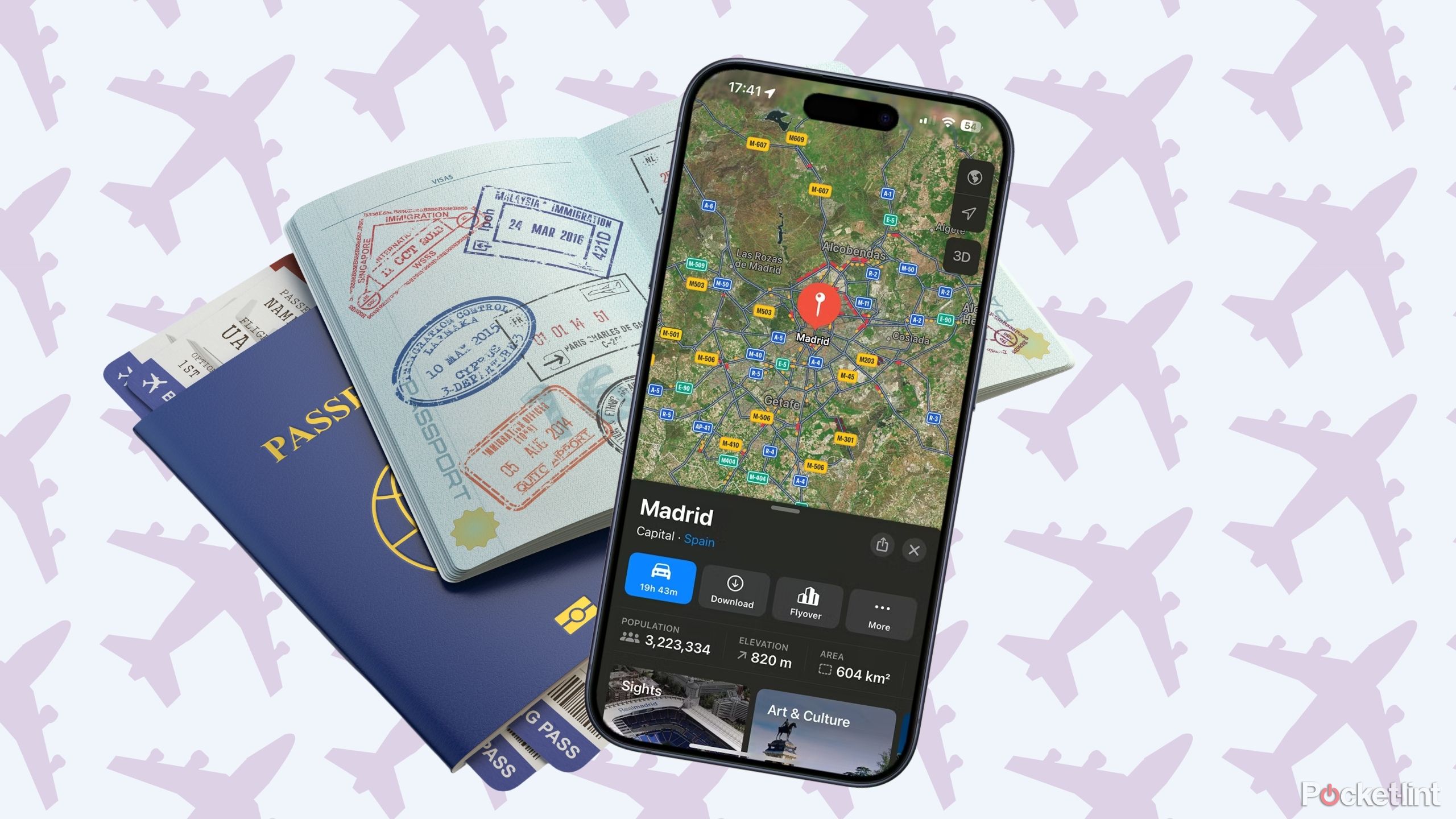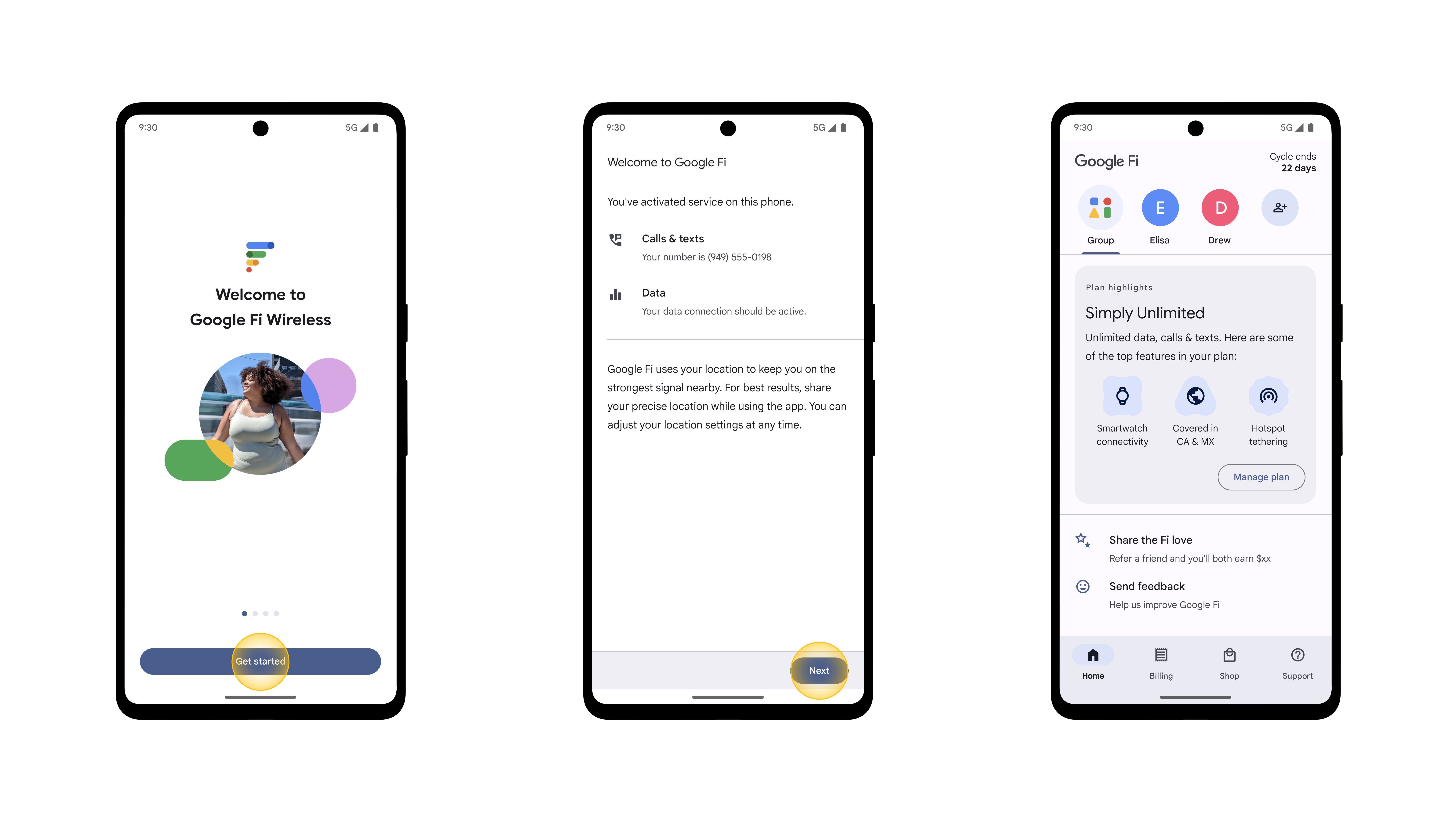Key Takeaways
- Google Fi supports both eSIM and physical SIM cards.
- Only select phones from Apple, Google, and Samsung are officially eSIM-compatible.
- It’s normally faster to sign up through eSIM.
Phone makers are slowly working to eliminate as many ports as possible. We’ve already lost 3.5mm headphone jacks on most models, and there’s talk that Apple wants to ditch wired charging and data in a few years. That might not be realistic, but if you’re in the US, most iPhones are now shipping without a SIM card slot. It’s not hard to imagine more companies following suit.
For that reason or simply convenience, it’s worth exploring whether any carrier you’re signing up for supports eSIM. What does the eSIM situation at Google Fi look like?
Does Google Fi offer eSIM?
Yes. In fact, while you can get a physical SIM card for the service, eSIM seems to be Google’s priority. You probably won’t find Google Fi SIMs at your local electronics store, so expect to wait a few days for one to appear in your mailbox.
Google Fi
Google’s Fi Wireless app makes it easy to sign up for cell service, pick out a plan, and even order a new phone from the same app. When you want to switch to a new phone, just download the app again.
Which phones support eSIM on Google Fi?
This is arguably the biggest catch with the tech. As of this writing, Google only supports eSIM on the following phones:
- “Most” Google Pixel 2, 3, and 3a models (check for exceptions)
- Google Pixel 4 and later
- Apple iPhone 14 and later
- Samsung Galaxy S20 and later
- Samsung Galaxy Note 20
- Samsung Galaxy Z Flip 3 and later
- Samsung Galaxy Z Fold 4 and later
Other phones could hypothetically work as long as they offer eSIM, but don’t assume they will. You’ll want to scan Google’s compatibility list as new products hit the market.
How do you set up a Google Fi eSIM?
Google has tried to simplify the setup process as much as possible, so it usually looks like this:
- Sign up for Google Fi via fi.google.com and your Google account. Remember, Fi is only open to US residents.
- Download the Google Fi app from the Google Play Store or Apple App Store.
- Make sure your phone is connected to Wi-Fi.
- Launch the app and tap Get Started.
- Sign into your Google account.
- The app should guide you through the rest of the specific setup process for your phone.
 What are the advantages and disadvantages of eSIM?
What are the advantages and disadvantages of eSIM?
The biggest benefit is the ease of switching networks. You can sign up for a new carrier from anywhere, whereas physical SIMs have to be ordered online or at a local retail outlet.
Along those lines, eSIM can potentially be better for travel. Some companies now even specialize in eSIM travel plans, which you can buy in advance to hit the ground running at your destination, which is preferable to fiddling with a SIM tool in a shop or airport terminal.
It’s also possible to load several eSIMs on any given phone, whereas you’ll get two physical slots at most.
The one major downside of eSIM is switching devices. While there’s no card to lose or damage, you also can’t switch phones on the fly — you need to run through a setup process on the new hardware.

